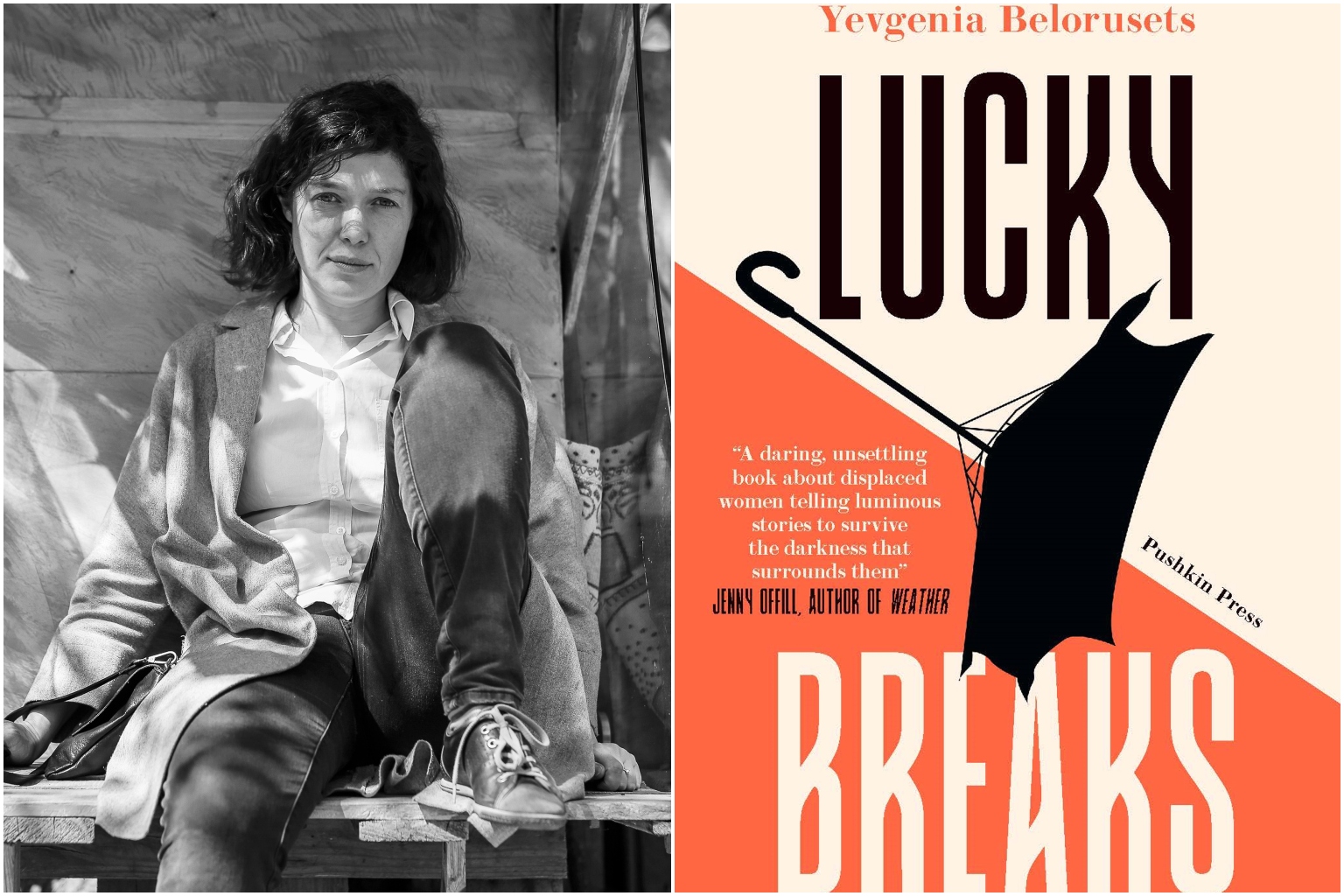Book review: Lucky Breaks tells the stories of ordinary women in Ukraine
Sign up now: Get ST's newsletters delivered to your inbox

Ukrainian photographer Yevgenia Belorusets' haunting, evocative collection Lucky Breaks was first published in Russian in 2018.
PHOTOS: OLGA TSYBULSKA, PUSHKIN PRESS
Follow topic:
Lucky Breaks
By Yevgenia Belorusets, translated by Eugene Ostashevsky
Fiction/Pushkin Press/Paperback/196 pages/$21.95/Buy here
4 stars
Fiction/Pushkin Press/Paperback/196 pages/$21.95/Buy here
4 stars
Ukrainian photographer Yevgenia Belorusets draws on the stories of women affected by the war in East Ukraine in a haunting, evocative collection.
Lucky Breaks was first published in Russian in 2018 - four years after the Russia-Ukraine conflict began - and blends fiction with factual record, shedding light on the toll of the conflict on women such as a florist, a manicurist and a cleaning lady through the lens of the mundane, surreal and absurd.
Some of her characters have been displaced from their homes. One woman cannot forget the apartment she left behind. Another pays regular visits to a cosmetologist, seeking balm for her dry skin as well as her trauma.
In neighbourhoods bombarded by shelling, locals consult horoscopes in the paper to find out when it is safe to go outside.
Many of the tales have a strange, surreal quality. The story Transformations describes one Olga Petrovna, who has an uncanny knack for changing one thing into another. Looking at a teapot, she says: "I became incensed, and at one fell swoop zonked it into a fan."
Lucky Breaks may appeal to fans of Svetlana Alexievich, the Belarusian journalist and oral historian whose book Secondhand Time (2013) was a polyphony of Russian voices - people recounting their lives during and after the fall of the Soviet Union.
But Belorusets' book feels less like a noisy polyphony than a slow, mournful dirge. Lucky Breaks, whose Russian title ironically means "happy falls" or "fallings", is a portrait of a society in greyscale; a chorus in minor key.
Reading it now, during the Russian invasion of Ukraine - and as Ukrainian cities such as Sumy, Donetsk and Kharkiv dominate global headlines - the book will feel more immediate to an international audience. Interspersed within the pages of Lucky Breaks are also pictures from two of Belorusets' photographic series, which give the stories an even starker sense of place.
In a 2018 interview, Belorusets was asked about the ethics of blurring record and fiction in an age of fake news. Her reply is cited by Eugene Ostashevsky in his afterword: "Any document is partly a lie, and this is especially true of documentary photography, which only ever conveys a small part of reality."
Lucky Breaks' greatest achievement is the attention it pays to people on the sidelines of history - people who are overlooked, but whose trauma and memories are no less real. In a note at the start of the book, Belorusets writes: "You are reading a collection of tales that aspire to a certain quality of photography: the quality of escaping the author's final control over the materiality of past events, encounters, conversations, histories."
Working obliquely, and well aware that her writing can only be subjective and incomplete, she tells these women's stories.
- If you like this, read: Grey Bees (Quercus Publishing, $18.95, 2020, buy here), Andrey Kurkov's novel about a mild-mannered beekeeper living in Ukraine's "grey zone" between loyalist and separatist forces. The book, translated by Boris Dralyuk, was originally published in Russian in 2018.
This article contains affiliate links. If you buy through these links, we may earn a small commission.

